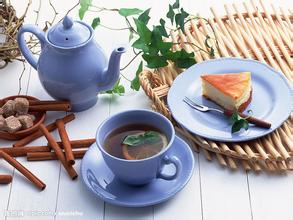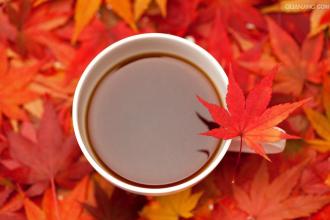Introduction to the characteristics of flavor and taste of Jamaican coffee manor with long-lasting fruit flavor
1717 King Louis XV of France ordered coffee to be grown in Jamaica for twenty years
Blue Mountain Coffee
Blue Mountain Coffee (6 photos)
In the mid-19th century, Sir Nicholas Lawes, Governor General of Jamaica, imported Arabica seeds from Martinique and began planting them in St. Andrew. To this day, St. Andrew's is one of the top three growing regions for Blue Mountain coffee in Jamaica, along with Portland and St. Thomas. Within eight years, Jamaica exported more than 375 tons of pure coffee. Coffee production peaked in 1932, harvesting more than 15000 tons of coffee.
The Jamaica Coffee Industry Board was established by the Government of Jamaica in 1950 to establish quality standards for Jamaica coffee and oversee the implementation of quality standards to ensure the quality of Jamaica coffee. The Commission awards special official seals to Jamaica's exports of raw and roasted coffee and is the world's highest national coffee authority. Those that can represent the origin of Blue Mountain Coffee include Mavis Bank Coffee Factory (M.B.C. F), Blue Mountain Coffee Cooperative Factory (M.H.C.C.T.), Portland Blue Mountain Coffee Cooperative Plant (P.X.X.S.H.), The Coffee Industry Association (Wallenford), Coffee Industry Association (St. John's Peak) and Blue Mountain Coffee (J.A. S) are the six hallmarks of Blue Mountain Coffee as the world's most superior coffee, and Jamaica's weather, geological structure and terrain combine to provide the ideal location. Ridges running through Jamaica extend to the east of the island, and the Blue Mountains rise to more than 2100 meters. The weather is cool, foggy and rainy frequently. Use this rich soil to harmonize with rainwater. Here, coffee trees are grown in a mixed cropping system, alongside banana and avocado trees on terraces. Some small farms are also planted. But even the region's largest planters are small-scale farmers by international standards, many of them smallholders whose families have been working for two centuries. The coffee industry in Jamaica faces a number of problems, such as the impact of hurricanes, increased labour costs and difficulties in mechanising terraces. Many small estates and farms are difficult to rationalize.
Since Japan has always invested in Jamaica coffee industry, Blue Mountain coffee is mostly controlled by the Japanese, and they have also obtained the right of first refusal to buy Blue Mountain coffee. In 1992, Jamaica sold 688 tons of Blue Mountain coffee to Japan, 75 tons to the United States and 59 tons to Britain. 90% of Blue Mountain Coffee is purchased by Japanese. Since the rest of the world can only get 10% of Blue Mountain coffee, Blue Mountain coffee is always in short supply regardless of the price. While price can guarantee an adequate supply of Blue Mountain coffee, it does not guarantee the coffee has the best flavor. Also, this coffee tastes a lot more expensive than it looks. To taste its best flavor, put in more coffee beans than other coffee, otherwise the flavor will be a little different, so the flavor lies in it than the price of coffee to add 10% to 15% more coffee beans.
Real Blue Mountain coffee is made from the best local green coffee beans, and that's what's so fun about tasting home. Its rich flavor, balance, rich fruit flavor and sour, can meet people's various needs. In addition, good fresh Blue Mountain coffee has a particularly long lasting flavor, as drinkers say, with endless aftertaste.

Important Notice :
前街咖啡 FrontStreet Coffee has moved to new addredd:
FrontStreet Coffee Address: 315,Donghua East Road,GuangZhou
Tel:020 38364473
- Prev

Introduction to the fresh and elegant Panamanian Kasha Coffee Flavor and Taste area
The famous beans of Alida Farm are also his washed beans, which taste clean and clear with a floral aroma. At present, Alida Farm tries a variety of treatment methods, including water washing treatment, sun treatment and honey treatment of coffee beans. It is worth mentioning that Alida farm honey-treated coffee beans, a combination of sun and water washing methods, in fresh coffee pulp
- Next

Good average quality; aromatic and full-bodied Ethiopian coffee plantation taste characteristics
Ethiopian coffee beans grow in a near-natural environment. After years of cultivation under the same growing conditions, Ethiopian coffee beans have gradually adapted to the environment here. More than 60% of coffee beans are forest or semi-forest grown coffee. Coffee farming villages produce about 35 percent of the country's coffee.
Related
- Detailed explanation of Jadeite planting Land in Panamanian Jadeite Manor introduction to the grading system of Jadeite competitive bidding, Red bid, Green bid and Rose Summer
- Story of Coffee planting in Brenka region of Costa Rica Stonehenge Manor anaerobic heavy honey treatment of flavor mouth
- What's on the barrel of Blue Mountain Coffee beans?
- Can American coffee also pull flowers? How to use hot American style to pull out a good-looking pattern?
- Can you make a cold extract with coffee beans? What is the right proportion for cold-extracted coffee formula?
- Indonesian PWN Gold Mandrine Coffee Origin Features Flavor How to Chong? Mandolin coffee is American.
- A brief introduction to the flavor characteristics of Brazilian yellow bourbon coffee beans
- What is the effect of different water quality on the flavor of cold-extracted coffee? What kind of water is best for brewing coffee?
- Why do you think of Rose Summer whenever you mention Panamanian coffee?
- Introduction to the characteristics of authentic blue mountain coffee bean producing areas? What is the CIB Coffee Authority in Jamaica?

